HT/TH RESEARCH DATABASE
Featured Papers
Here are 10 featured research papers selected by the Root in Nature team that provide valuable insights into HT and TH and its impact.

Effects of horticultural therapy on health in the elderly: A review and meta-analysis
The study evaluates the effectiveness of horticultural therapy (HT) for older adults by reviewing data from 32 studies and conducting a meta-analysis of 27 health-related variables. Results indicate that HT significantly reduces stress and cortisol levels, improves physical flexibility, promotes social interaction, and increases fruit and vegetable consumption. Additionally, it may help with weight management and waist circumference reduction, supporting its role in promoting a healthier lifestyle for aging populations. However, variations in study quality and methodology highlight the need for further high-quality trials with rigorous controls.
Findings confirm that HT enhances mental well-being, fostering a sense of purpose, social engagement, and psychological stability among older adults. While evidence supports its benefits, heterogeneity in study designs and outcome measures limits definitive conclusions. The study calls for standardized research approaches and larger sample sizes to better understand the long-term impact of gardening interventions on elderly health.
Yun, J., Yao, W., Meng, T., & Mu, Z. (2023). Effects of horticultural therapy on health in the elderly: A review and meta-analysis. Journal of Public Health, 32(10), 1905–1931. https://doi.org/10.1007/s10389-023-01938-w
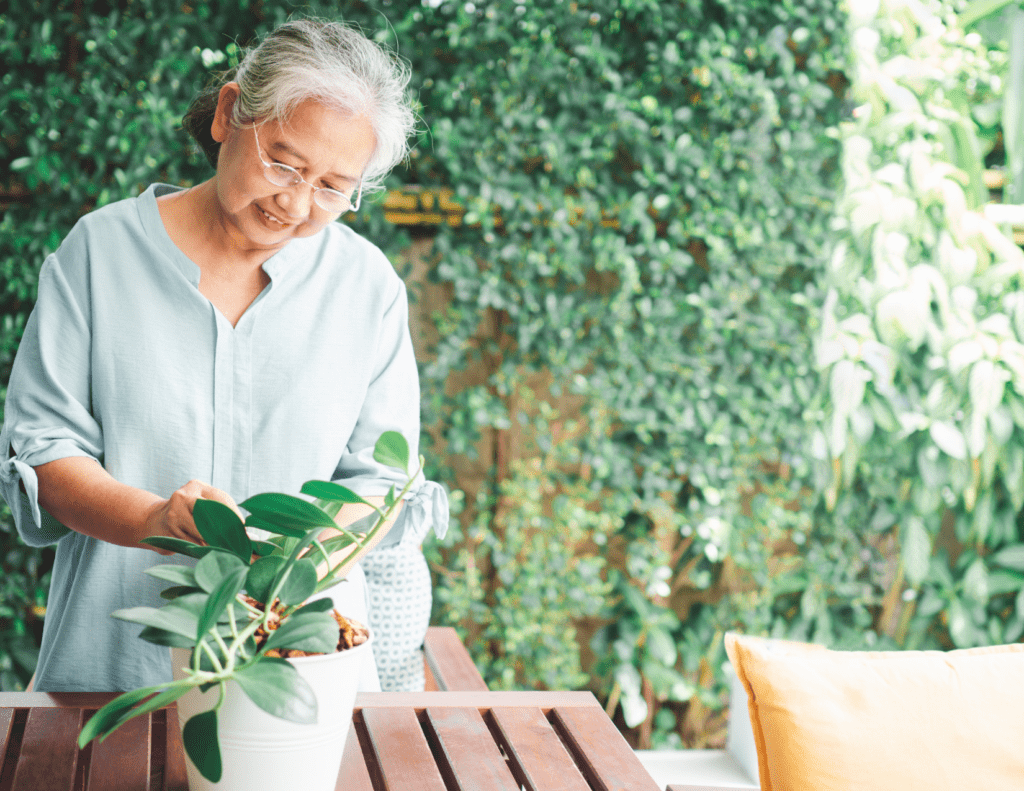
What Is the Impact of Using Outdoor Spaces Such as Gardens on the Physical and Mental Well-Being of Those With Dementia? A Systematic Review of Quantitative and Qualitative Evidence
The study synthesizes findings from 17 studies, including quantitative, qualitative, and mixed-method research, to assess how access to gardens and outdoor spaces benefits people with dementia. The results suggest that spending time in gardens can reduce agitation and improve mood, with some studies reporting decreased use of medication and increased engagement in physical and social activities. However, evidence on broader physical health benefits, such as improved sleep and fall reduction, remains inconclusive due to study limitations.
Qualitative findings indicate that gardens provide opportunities for relaxation, reminiscence, and meaningful social interactions, contributing to a sense of normalcy and emotional well-being. However, barriers such as staff availability, safety concerns, and restricted access due to facility policies limit the effectiveness of these interventions. The study calls for more rigorous research with standardized outcome measures to better understand the therapeutic potential of gardens in dementia care and to address accessibility challenges within residential care settings.
Whear, Rebecca & Thompson-Coon, Jo & Bethel, Alison & Abbott, Rebecca & Stein, Ken & Garside, Ruth. (2014). What Is the Impact of Using Outdoor Spaces Such as Gardens on the Physical and Mental Well-Being of Those With Dementia? A Systematic Review of Quantitative and Qualitative Evidence. Journal of the American Medical Directors Association. 15. 10.1016/j.jamda.2014.05.013.

Horticultural Therapy Course as an Educational-Therapeutic Tool of Rehabilitation for Persons with Musculoskeletal Disorders (MDs)
A study on horticultural therapy as a rehabilitation tool for individuals with musculoskeletal disorders (MDs) found that structured engagement with plants significantly improved functional abilities, self-care, and emotional well-being. Participants in a specialized therapy course showed a 7% increase in their ability to perform everyday tasks like cleaning, cooking, and personal care.
The therapy also enhanced social interaction, cognitive skills, and physical coordination, helping participants integrate better into daily life. The study highlights the neuroscientific benefits of interacting with nature, suggesting that horticultural therapy can be a powerful complement to traditional rehabilitation for individuals with mobility impairments.
Sarancha, I., Kovinko, M., Maksymchuk, B., Tarasenko, H., Kharchenko , S., Demchenko , I., Dovbnia , S., Rudenko , L., Symkanych , O., Martyniuk , T., Bilan , V., & Maksymchuk, I. (2022, June 17). Horticultural Therapy Course as an Educational-Therapeutic Tool of Rehabilitation for Persons with Musculoskeletal Disorders (MDs). Lumenpublishing.com.

The effectiveness of group-based gardening interventions for improving wellbeing and reducing symptoms of mental ill-health in adults: a systematic review and meta-analysis
This comprehensive systematic review and meta-analysis shines a positive light on the potential of group-based gardening interventions to boost well-being and alleviate depressive symptoms in adults. Researchers rigorously examined data from 24 randomized controlled trials, gathered from a search of databases. The findings suggest that engaging in gardening interventions can indeed lead to increased well-being and a reduction in the burden of depression.
While acknowledging some limitations such as heterogeneity and potential biases across studies (assessed using the Cochrane Risk of Bias tool), the meta-analyses offer promising evidence. The study authors emphasize that these encouraging initial results warrant further investigation to solidify the evidence base. Future studies are anticipated to address the identified limitations and provide even stronger support for the positive impact of gardening on mental health.
Briggs, R., Morris, P. G., & Rees, K. (2022). The effectiveness of group-based gardening interventions for improving wellbeing and reducing symptoms of mental ill-health in adults: a systematic review and meta-analysis. Journal of Mental Health, 32(4), 787–804. https://doi.org/10.1080/09638237.2022.2118687

An Observational Assessment of a Dementia-specific Horticultural Therapy Program
The study identifies five types of nature-based ADS in cities, including services run by social entrepreneurs, nursing homes, social care organizations, community gardens, and hybrid initiatives. These programs offer activities like gardening, caring for animals, and outdoor social engagement, providing mental and physical benefits for people with dementia while supporting caregivers. However, the study highlights significant challenges such as securing urban green spaces, funding constraints, and differences in organizational priorities between care providers and community initiatives.
A key takeaway is that collaboration between nursing homes, social entrepreneurs, and community organizations can enhance the effectiveness and sustainability of these services. While traditional care models focus on risk prevention, community-driven approaches create more engaging environments that promote social interaction and a sense of purpose. The study underscores the need for integrated strategies that balance safety with stimulating activities to improve the quality of life for individuals with dementia in urban settings.
Hassink, J., Vaandrager, L., Buist, Y., & de Bruin, S. (2019). Characteristics and challenges for the development of nature-based adult day services in urban areas for people with dementia and their family caregivers. Int J Environ Res Public Health., 16(8), 1337.

The Healing Power of Horticultural Therapy in Addiction Recovery
This article explores the potential of horticultural therapy as a way to help people recovering from addiction. It suggests that being in nature has a natural ability to help people heal and feel better mentally. The article explains that horticultural therapy, which involves working with plants, can offer special benefits in addition to the general positive effects of nature. These include providing a relaxing and engaging activity that promotes focus and a sense of purpose, reducing stress and helping to manage emotions, and creating a connection with the natural world that can build resilience as individuals witness the growth of plants, mirroring their own recovery. The sensory experience of gardening, like the smells and textures, can also increase mindfulness and reduce cravings.
Beyond these individual benefits, the article highlights how hands-on gardening activities can build important life skills such as responsibility, patience, perseverance, and problem-solving. Seeing plants grow as a result of their care can also give individuals a sense of accomplishment and boost their self-esteem. Furthermore, horticultural therapy can create opportunities for building supportive communities by connecting individuals in recovery through shared gardening experiences. Overall, the article argues that incorporating horticultural therapy into addiction recovery programs can offer a valuable and transformative path towards healing and a renewed sense of well-being.
The healing power of horticultural therapy in addiction recovery. (2023, July 17). Gardens Nursery. https://gardensnursery.com/healing-power-of-horticultural-therapy/?utm_source=chatgpt.com#google_vignette

A Review of Studies on the Efficacy of Horticultural Therapy Interventions based on physical and Mental Health Indicators in the Elderly
This study evaluated a 10-week horticultural therapy (HT) program for adults with dementia at a university-run adult day service program. The researchers developed and implemented stimulating, appropriate horticultural activities that could be modified to suit participants with varying abilities. They then compared the effects of these HT activities to more typical adult day service activities.
The study used observational methods to assess participant engagement and affect during HT and non-HT activities. The researchers hypothesized that participants would spend less time doing nothing and more time engaged in the presented activity during HT sessions than non-HT activities. They also expected participants to display more positive affect during HT activities. The results supported these hypotheses, showing that participants engaged in horticultural activities for longer periods than non-horticultural activities while maintaining comparable affect. The findings suggest that HT is an appropriate and beneficial activity for dementia care programs serving adults with a wide range of cognitive, physical, and social needs.
Jarrott, S. E., Kwack, H. R., & Relf, D. (2002). An Observational Assessment of a Dementia-specific Horticultural Therapy Program. HortTechnology, 12(3), 403–410. https://doi.org/10.21273/horttech.12.3.403

Gardening is beneficial for health: A meta-analysis
This review examines existing research on horticultural therapy (HT) and its impact on the physical and mental well-being of elderly individuals. Researchers compiled findings from various studies, both domestic and international, focusing on HT’s effects on mental health, physical health, social interaction, and cognitive abilities of diverse elderly populations, including those with dementia, depression, and those experiencing social isolation.
The analysis of these studies revealed that HT interventions, involving activities like indoor gardening and plant manipulation, can effectively reduce depression and anxiety, promote physical health by encouraging low to moderate intensity exercise (potentially reducing cardiovascular risk), and improve social interaction and cognitive function. While the review highlights the benefits of HT, it also identifies gaps in research, such as a need for more studies on the underlying mechanisms of HT’s effects and the design of optimal HT programs for the elderly.
Chen, Q. (2023). A review of studies on the efficacy of horticultural therapy interventions based on physical and mental health indicators in the elderly. Journal of Innovation and Development, 3(2), 93- 96

Gardening as a mental health intervention: a review
This review looks at the evidence for using gardening as a way to help people with mental health difficulties. The authors explain that there’s been a growing interest in this approach, with more and more gardening projects being set up to support vulnerable people. They mention that even in the 1800s, gardening was considered helpful in mental health institutions. The paper points out that past reviews of this topic found limited strong proof that gardening actually works. So, the main goal of this paper was to look at the more recent research to see what benefits have been reported and how good the research studies are.
To do this, the researchers searched through many databases to find studies published since 2003 that evaluated gardening projects for adults with mental health issues. They looked at what the gardening activities involved, any theories behind why they might work, what positive effects were reported, and how well the studies were conducted.
They found ten relevant studies, all of which suggested that gardening had positive effects, such as reducing symptoms of depression and anxiety. People who participated in these projects also reported a range of benefits in their emotions, social lives, job prospects, physical health, and even their sense of connection to nature. The authors conclude that while the research has improved, there’s still a need for even better studies to fully understand the value of gardening for mental health.
Clatworthy, J., Hinds, J., & Camic, P. M. (2013). Gardening as a mental health intervention: a review. Mental Health Review Journal, 18(4), 214–225. https://doi.org/10.1108/MHRJ-02-2013-0007.
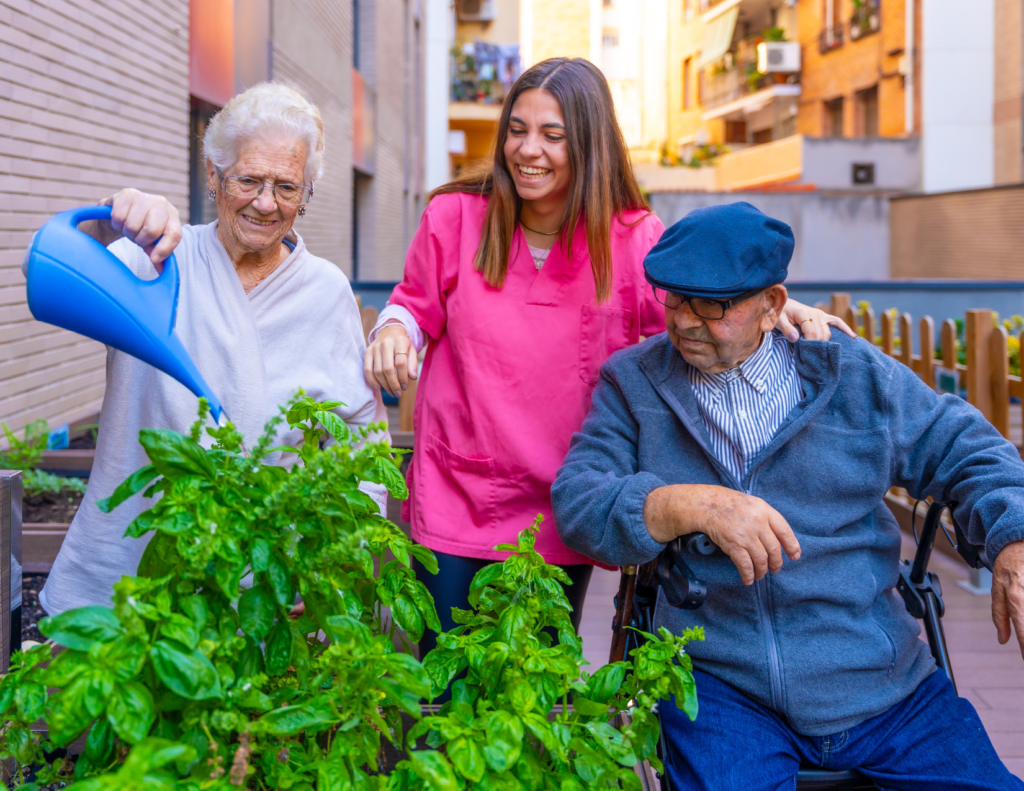
Effects of Horticultural Occupational Therapy on the Physical and Psychological Rehabilitation of Patients with Hemiplegia after Stroke
The research involved 40 stroke patients with hemiplegia, divided into a treatment group receiving horticultural occupational therapy (HOT) alongside occupational therapy (OT) and a control group receiving only OT. The HOT program included plant-based tasks designed to enhance motivation, adaptation, social skills, and communication. Results showed that the treatment group experienced greater improvements in hand dexterity, reduced depression, and increased independence in daily activities compared to the control group.
Patients in the HOT program demonstrated higher self-care ability and social cognition, suggesting that gardening-related tasks encourage both physical recovery and mental well-being. These improvements persisted beyond the intervention, highlighting HOT as an effective rehabilitation approach for stroke survivors. The study supports integrating horticultural activities into occupational therapy to enhance recovery outcomes.
Kim, M., Kim, G., Mattson, N., & Kim, W. (2010). Effects of Horticultural Occupational Therapy on the Physical and Psychological Rehabilitation of Patients with Hemiplegia after Stroke. Kor. J. Hort. Sci. Technol, 28(5), 884–890.
Explore More Featured Papers with a Paid Access
If you found these featured papers valuable and want to dive deeper, you can access additional papers below with paid access only.
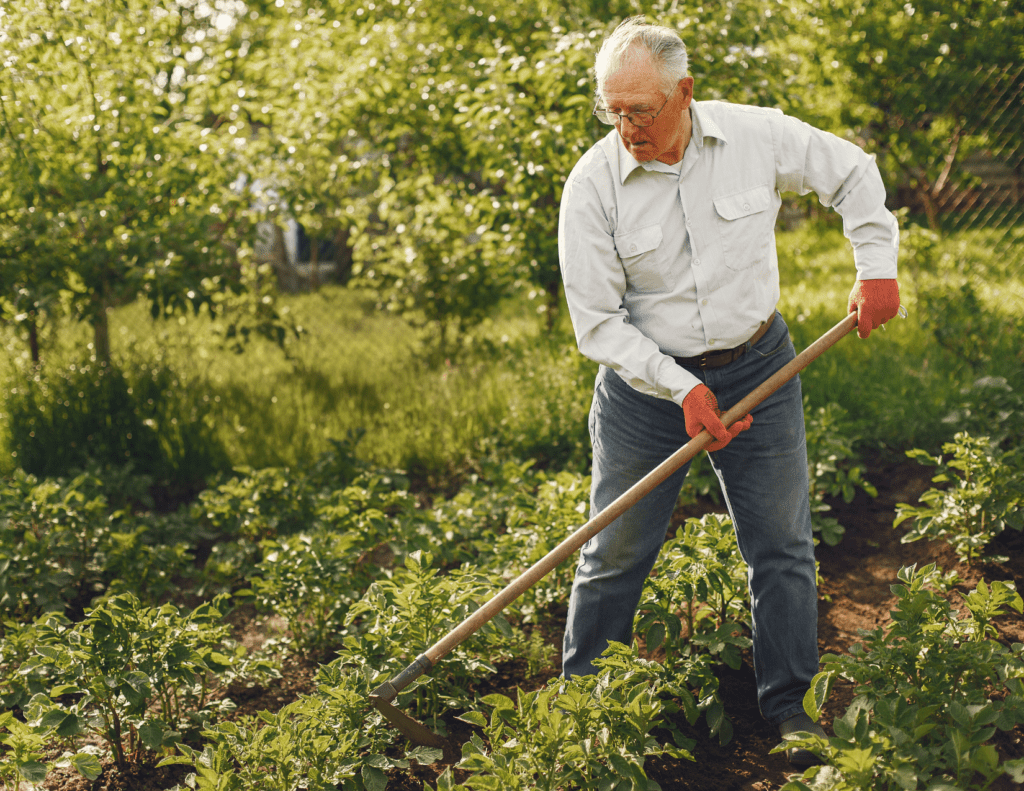
Benefits of sensory garden and horticultural activities in dementia care: a modified scoping review
This review looks at how gardens that stimulate the senses and gardening activities can help people with dementia. The researchers reviewed sixteen different studies on this topic. These studies looked at things like how these gardens and activities affect people’s behavior, emotions, and general happiness. The goal was to gather all the important information about using gardens and indoor plants to care for people with dementia.
The article suggests that being in a sensory garden or doing gardening can make people feel better and act less restless. It also seems to help them sleep better, fall less, and need fewer drugs for mental health issues. In short, gardens and gardening can be a comforting, non-medical way to improve the lives of people with dementia.
Gonzalez, M.T. & Kirkevold, M. (2014). Benefits of sensory garden and horticultural activities in dementia care: A modified scoping review. J Clin Nurs., 23(19-20), 2698-715.
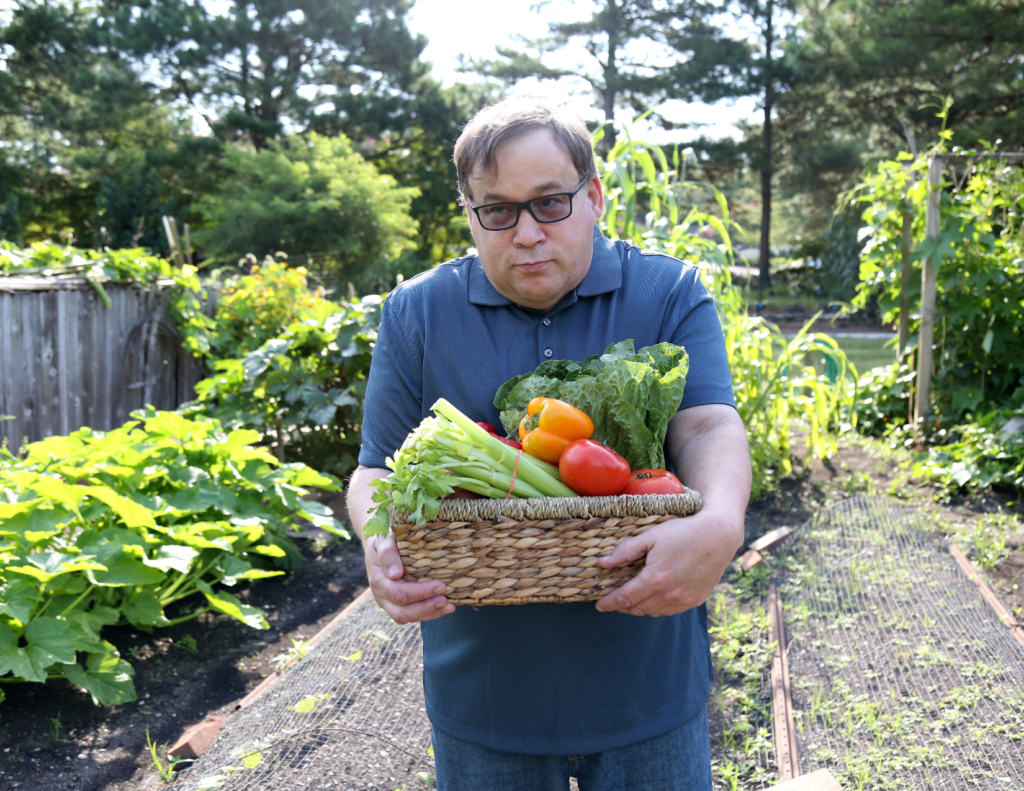
Horticultural Therapy has Beneficial Effects on Brain Functions in Cerebrovascular Diseases
This review looks at how gardens that stimulate the senses and gardening activities can help people with dementia. The researchers reviewed sixteen different studies on this topic. These studies looked at things like how these gardens and activities affect people’s behaviour, emotions, and general happiness. The goal was to gather all the important information about using gardens and indoor plants to care for people with dementia.
The article suggests that being in a sensory garden or doing gardening can make people feel better and act less restless. It also seems to help them sleep better, fall less, and need fewer drugs for mental health issues. In short, gardens and gardening can be a comforting, non-medical way to improve the lives of people with dementia.
Mizuno-Matsumoto, Y., Kobashi, S., Hata, Y., Ishikawa, O., & Asano, F. (2008). Horticultural Therapy has Beneficial Effects on Brain Functions in Cerebrovascular Diseases. International Journal of Intelligent Computing in Medical Sciences and Image Processing, 2(3), 169–182. https://doi.org/10.1080/1931308x.2008.10644162
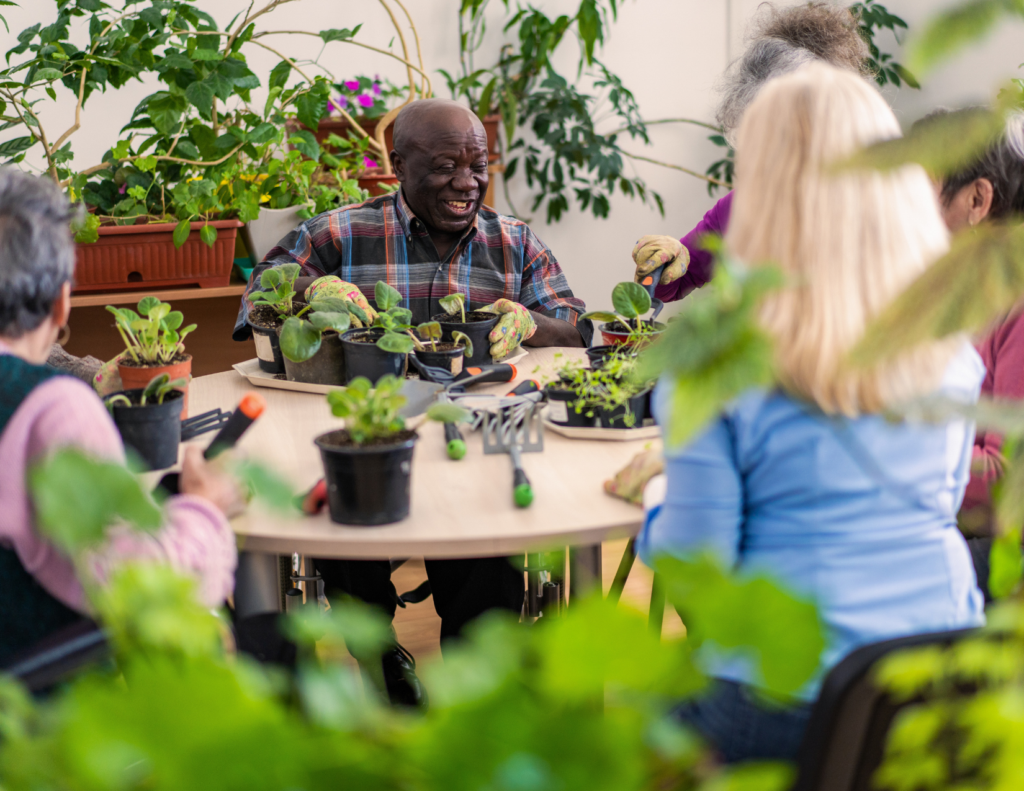
Social connectedness as a mediator for horticultural therapy's biological effect on community-dwelling older adults: Secondary analyses of a randomized controlled trial
This study investigated the potential of horticultural therapy (HT) to address two key risk factors for dementia and depression: elevated inflammatory markers and lack of social connectedness. The research, a secondary analysis of a randomized controlled trial, focused on 59 older adults (average age 67, 78% women) split into an HT group and a waitlist control group.
The findings revealed a significant link between social connectedness and reduced levels of the inflammatory marker IL-6. Importantly, improved social connectedness at 3 months mediated the effects of HT on IL-6 levels at 6 months. This suggests that HT’s biological benefits may be largely attributed to enhanced social connections. These results underscore the importance of social connectedness in HT interventions, and provide valuable insights for healthcare professionals, suggesting that fostering social connections should be a key consideration when implementing horticultural therapy programs.
https://example.com/this/is/a/very/long/url/that/needs/to/break/properly/without/overflowing/the/container
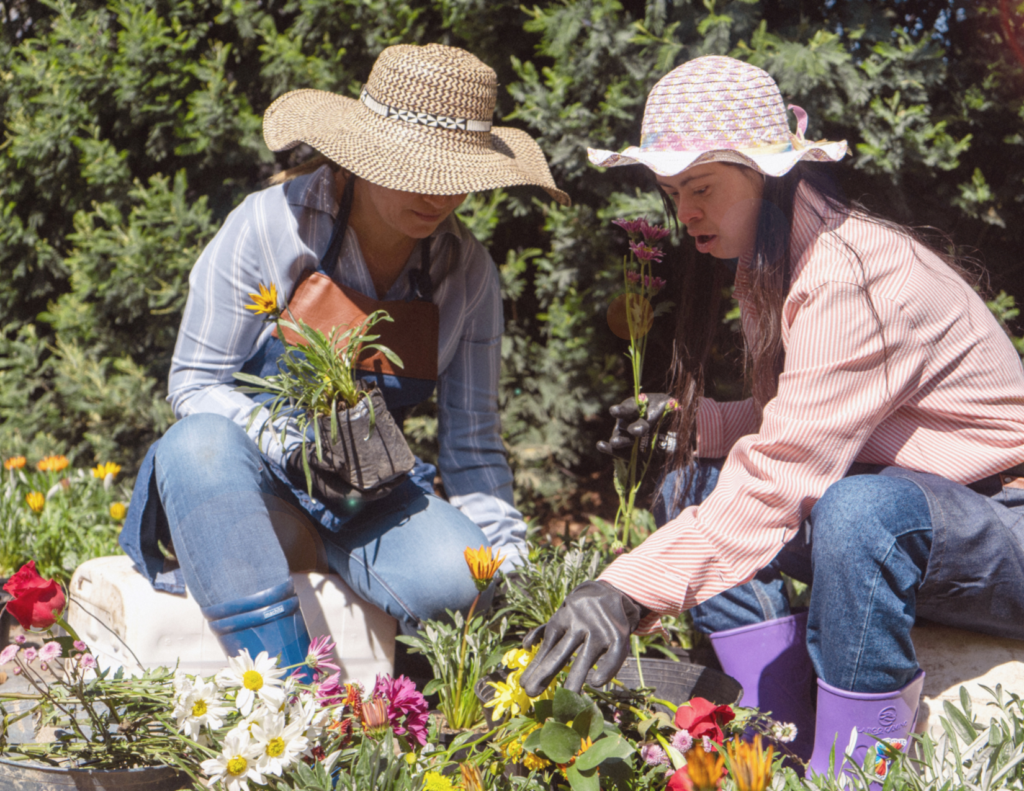
The benefits of therapeutic horticulture for vulnerable groups
This research paper explores how gardening and horticulture can help vulnerable adults who experience social exclusion, such as those with learning difficulties, mental health problems, physical disabilities, and long-term unemployment. The study looks at projects across the UK where these individuals participate in activities like growing plants, making crafts, and even doing contract gardening work. While it’s commonly known that gardening is relaxing for most people, this paper focuses on the specific therapeutic benefits for these vulnerable groups, which are not as widely recognized.
The researchers highlight that these social and therapeutic horticulture (STH) projects provide valuable social and therapeutic benefits, helping participants feel more empowered, valued, and like their contributions matter.
The findings of this study show that participating in these gardening projects offers significant social opportunities for clients, allowing them to expand their social circles and form new friendships. Beyond social connections, clients also benefit from education and training, the chance to sell produce, and the satisfaction of eating what they’ve grown, which improves their overall health and well-being. Furthermore, the projects provide a space for self-reflection, relaxation, and connection with nature, ultimately boosting self-confidence, independence, and both physical and mental health. The research suggests that making health and social care professionals more aware of these benefits and creating clearer guidelines for referring clients to STH projects could be beneficial.
Aldridge, J., & Sempik, J. (2005). The benefits of therapeutic horticulture for vulnerable groups. Benefits: A Journal of Poverty and Social Justice, 13(3), 223–225. Bristol University Press Digital. https://doi.org/10.51952/wlsy9354
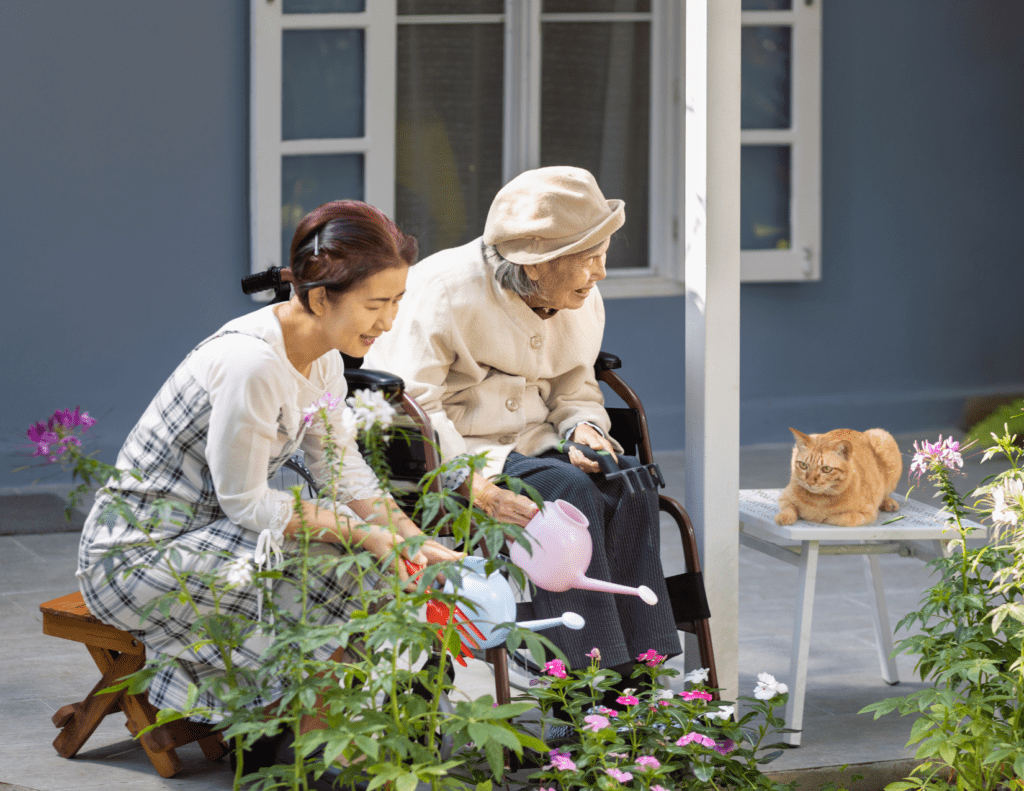
The Effectiveness of Horticultural Therapy on Older Adults: A Systematic Review
This research paper looks into the scientific evidence supporting whether horticultural therapy (HT), which involves plant-based activities, has positive effects on older adults. The researchers conducted a thorough search for studies published between 2008 and 2018 that examined how HT impacted people aged 60 and over. They looked at various outcomes such as quality of life, anxiety, depression, social connections, physical abilities, and cognitive function. The goal was to get a clear understanding of what the recent research says about the benefits of engaging older adults in activities like gardening.
The review of 20 relevant studies found that there is evidence suggesting that HT can lead to improvements in several areas for older adults, particularly in quality of life, anxiety, depression, social relations, physical effects, and cognitive effects. These positive changes were often seen when comparing participants before and after they took part in HT programs. However, the researchers also noted that many studies lacked strong comparisons between groups of older adults who received HT and those who did not. Therefore, while the findings are promising, the paper concludes that more rigorous research, especially well-designed controlled trials, is needed to firmly establish the effectiveness of HT for older adults.
Nicholas, S. O., Giang, A. T., & Yap, P. L. K. (2019). The effectiveness of horticultural therapy on older adults: A systematic review. Journal of the American Medical Directors Association, 20(10), 1351.e1–1351.e11. Science Direct. https://doi.org/10.1016/j.jamda.2019.06.021
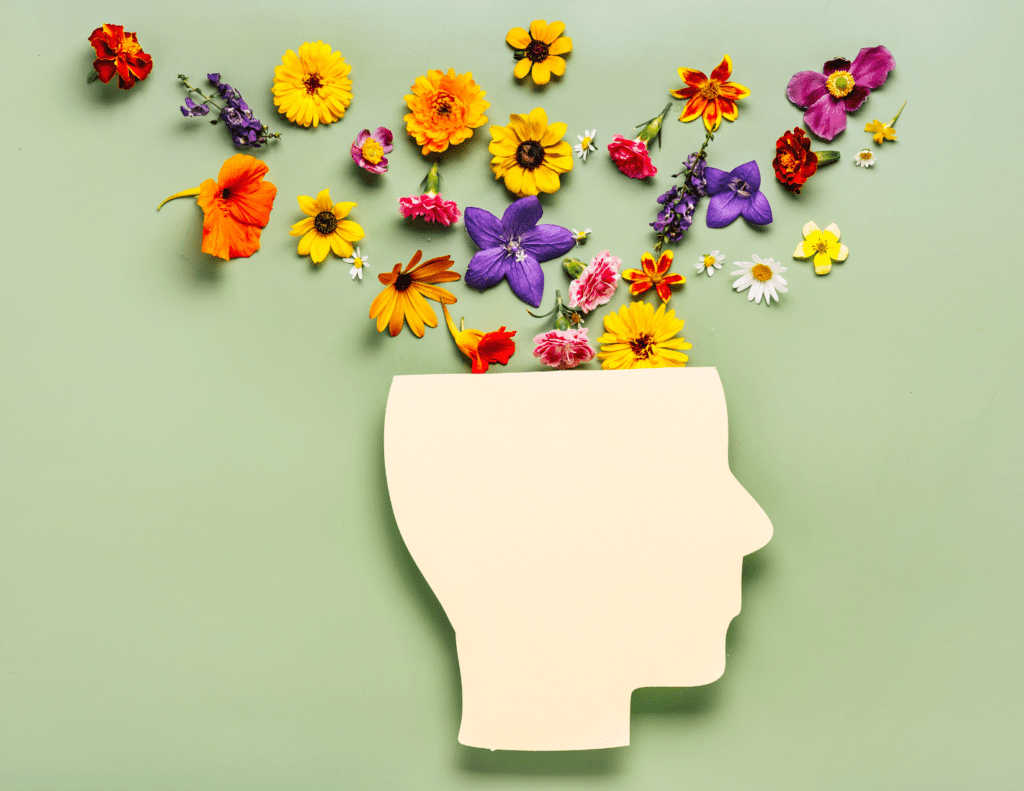
Effect of horticultural therapy on mental health: A meta-analysis of randomized controlled trials
Summary Coming Soon
Tu, H.M. (2022). Effect of horticultural therapy on mental health: A meta‐analysis of randomized controlled trials. Journal of Psychiatric and Mental Health Nursing, 29(4), 603-615.





